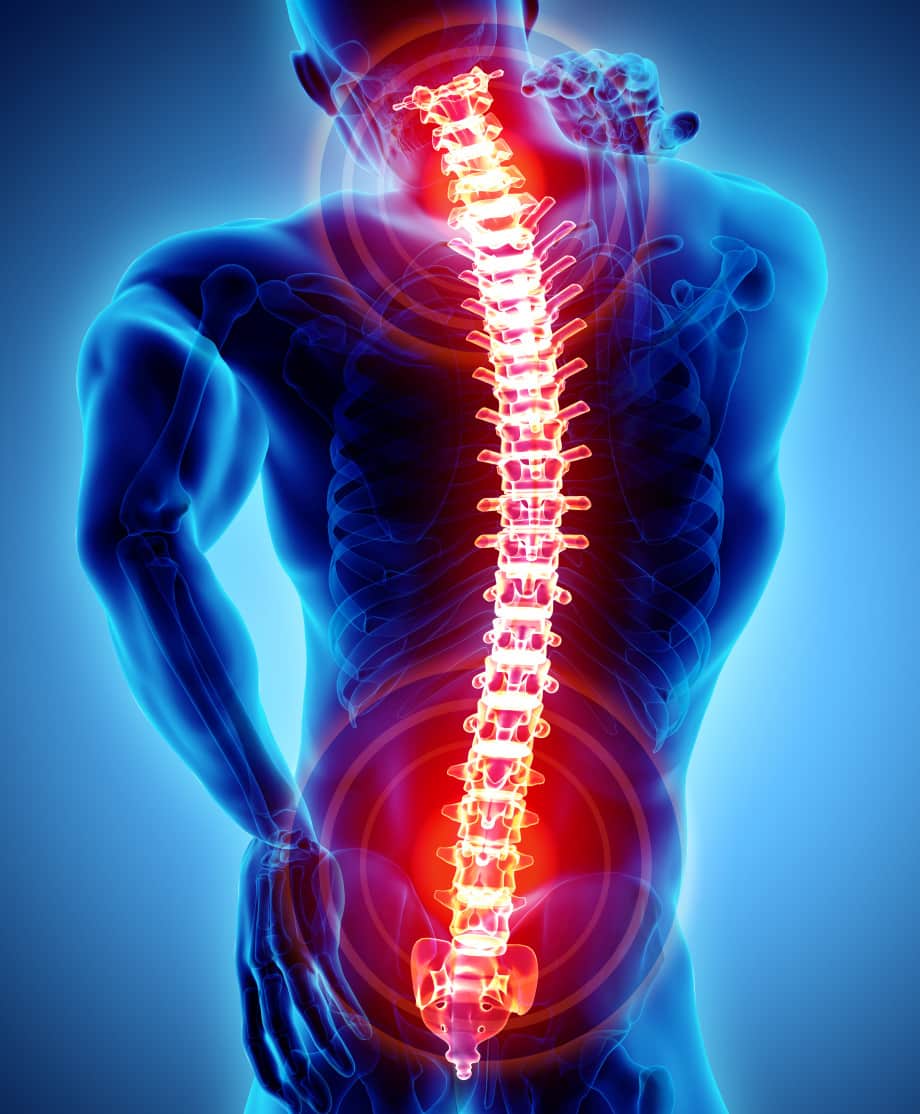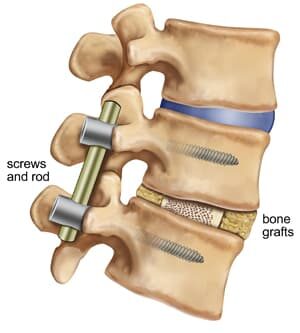Cervical and Lumbar Fusions
Are you suffering from back pain?
The Spine Specialists at MD West ONE can properly diagnose any spinal issues. If you are diagnosed by one of MD West ONE's Board Certified Spine Specialists with the following issues, you may be recommended a spinal fusion to help correct this problem.
- Broken Vertebrae
- Spinal Deformities
- Spinal Weakness or Instability
- Spinal Disorders

What is a Spinal Fusion?
A spinal fusion is a surgical procedure that permanently joins two or more vertebrae into a single structure. This specific procedure was developed to aid patients with their back pain by stopping movement between two or more vertebrae. Once the affected vertebras are fused, this will prevent any further stretching of nearby nerves, ligaments, and muscles—sources of pain or discomfort.

How are Spinal Fusions performed?
Spinal fusions have been performed for decades by MD West ONE providers. There are multiple different ways that a spinal fusion can be achieved.
- Anterior approach: through this approach, the surgeon will access your spine from the front by making an incision on your neck or lower abdomen.
- Posterior approach: through this approach, the surgeon will access your spine from the back.
- Lateral approach: through this approach, the surgeon will access your spine from the side.
When performing the fusion, your provider may use screws, rods, or bone graft (a piece of bone taken for your or another person's hip or pelvis). One of MD West ONE's spine specialists will review this with you and discuss which option would be best for you.
Which type of conditions can be treated with a spinal fusion?
Spinal fusions are typically recommended once the provider knows what is causing the pain. Below you will find some examples of conditions that may qualify for a spinal fusion:
- Degenerative disc disease (the space between discs narrows; sometimes they rub together)
- Fracture (broken spinal bone)
- Scoliosis—abnormal spine curvature
- Spinal stenosis (narrowing of the spinal canal)
- Spondylolisthesis (forward shifting of a spinal disc)
- Tumors or spine infection







